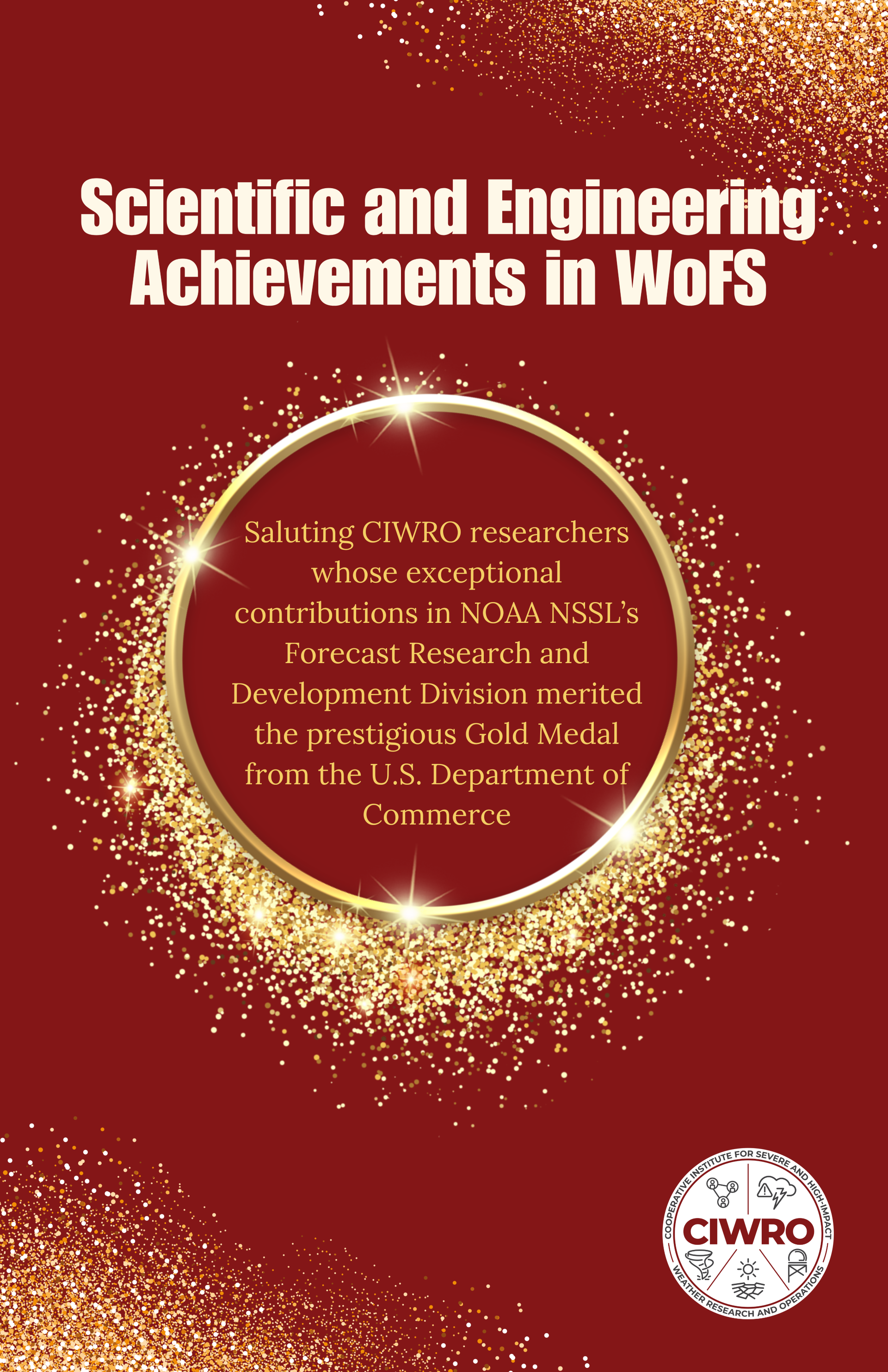Please resize your screen in order to view site.
Gold Medal Award
The Cooperative Institute for Severe and High-Impact Weather Research and Operations (CIWRO) is proud to announce that the innovative contributions, dedication and team work of employees at CIWRO and at the National Oceanic and Atmospheric Administration (NOAA) National Severe Storms Laboratory (NSSL) have led to the NSSL Forecast Research and Development Division (FRDD) winning the Department of Commerce Gold Medal. The Gold Medal is the highest honor that can be bestowed by the U.S. Department of Commerce and is awarded to individuals or groups for exceptional service for noteworthy or superlative contributions, which has a direct and lasting impact. CIWRO is honored to be recognized for our work in advancing the science of meteorology and improving the accuracy of weather forecasts.
The Gold Medal is a testament to the dedication and hard work of the scientists, researchers, and staff at CIWRO and NSSL who work tirelessly to improve our understanding of severe and high-impact weather events and to develop new tools and technologies to help protect lives and property. We are committed to continuing our work to advance the science of meteorology and to provide the best possible weather forecasts and warnings to the public.
We would like to thank NOAA for this prestigious award and for their continued support of our work. We would also like to thank the staff, students, and partners of CIWRO and NSSL for their hard work and dedication to advancing the science of meteorology and improving the accuracy of weather forecasts. We look forward to continuing our work to improve our understanding of severe and high-impact weather events and to provide the best possible weather forecasts and warnings to the public.
People Involved
Derek Stratman

Derek Stratman has been a part of the WoF team since 2016. His research has been focused on advancing WoFS through assessing and improving ensemble design, finding new ways to use NSSL phased-array radar data in WoFS, and helping develop a next-generation WoFS.
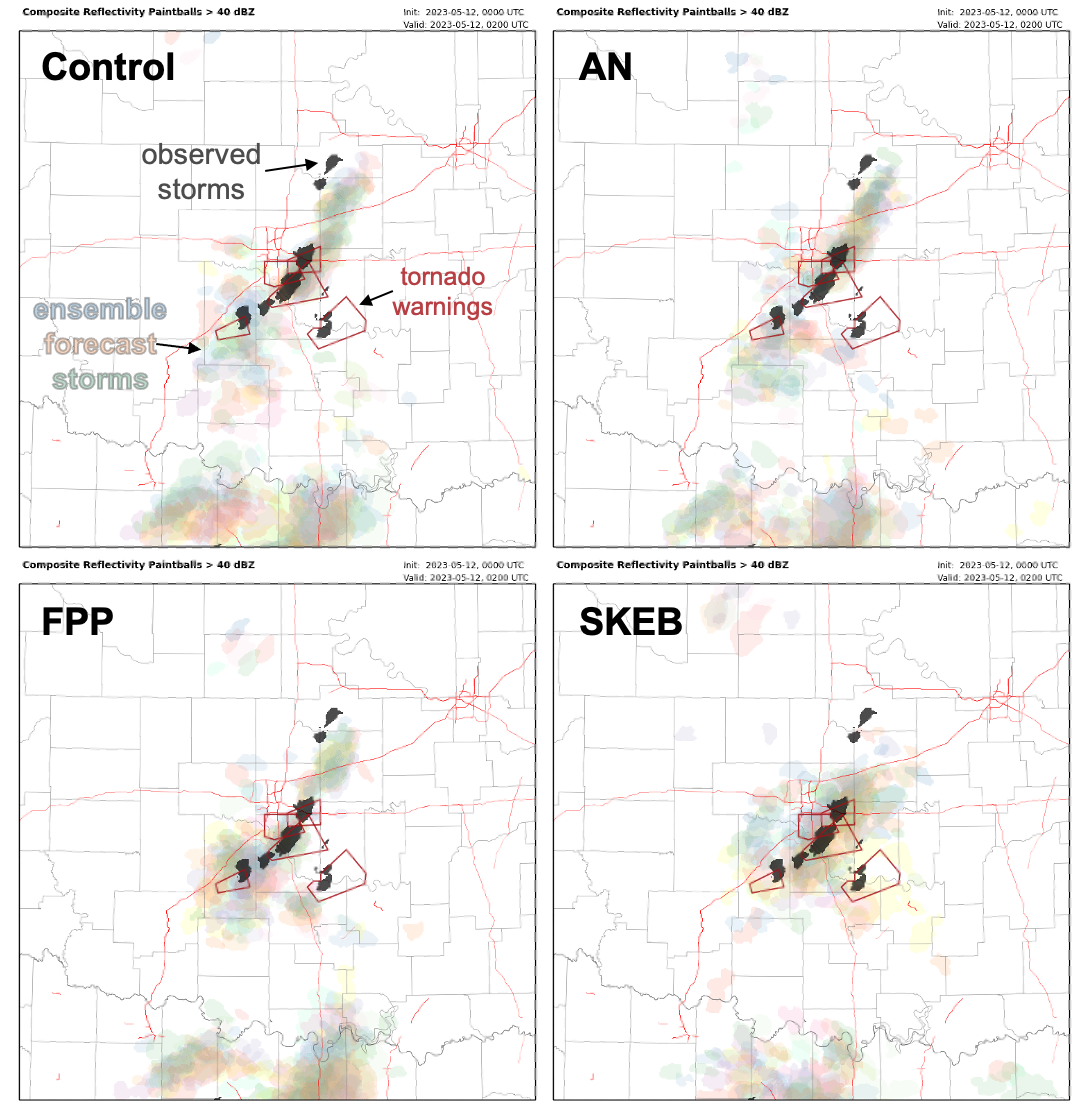
Montgomery Flora
Montgomery Flora developed the first machine learning products integrated into WoFS. The WoFS-ML-Severe products offer nearwarning-scale guidance on individual severe weather hazards. He also developed the main Python codebase for all of WoFS's post-processing and visualizations.
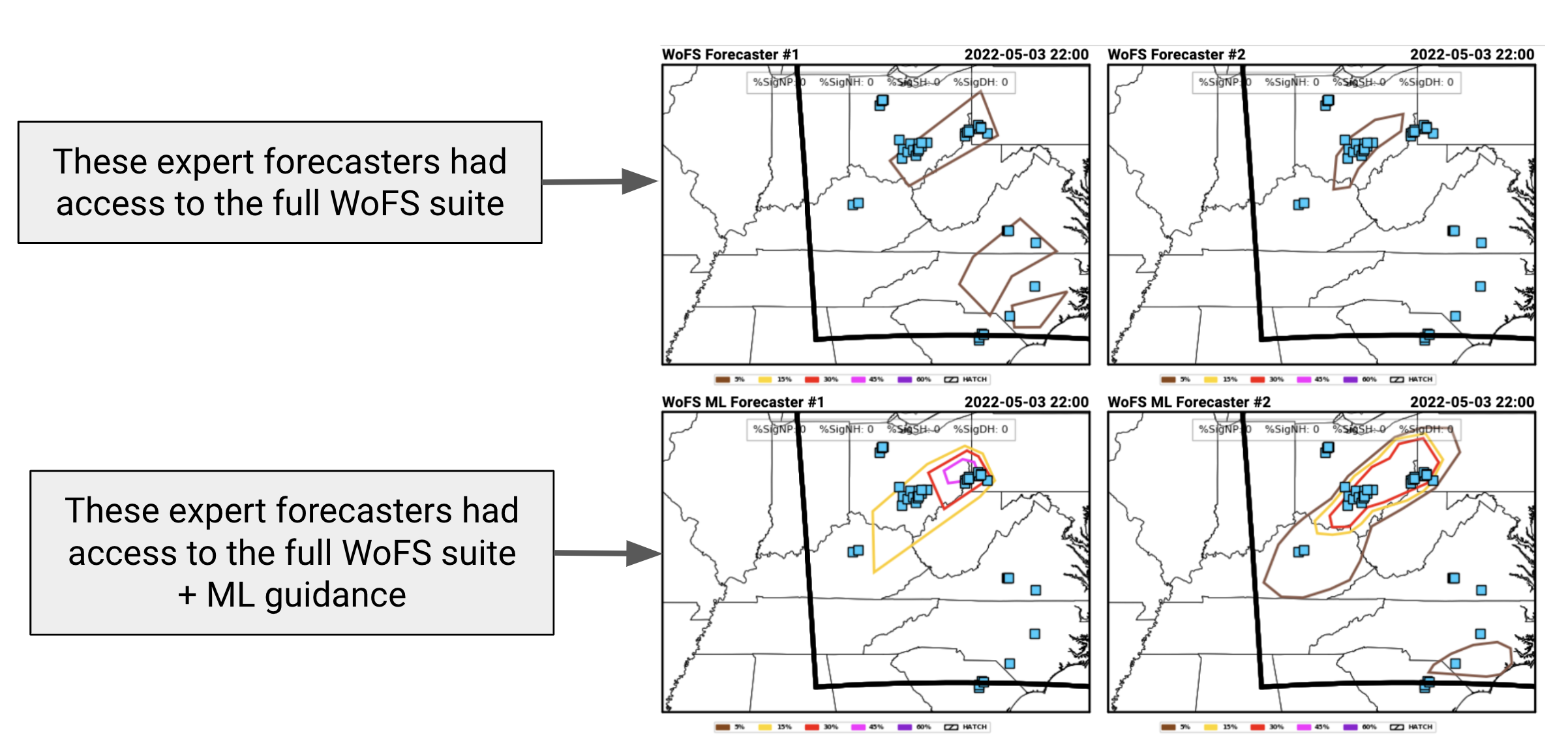

Thomas Jones

Integrating HRRR smoke data into the emerging WoFS is crucial to mitigating wildfires. Because of Thomas Jones's research, forecasters will ultimately receive fire updates in 5-min intervals. Today's existing smoke modeling systems are limited to just hourly
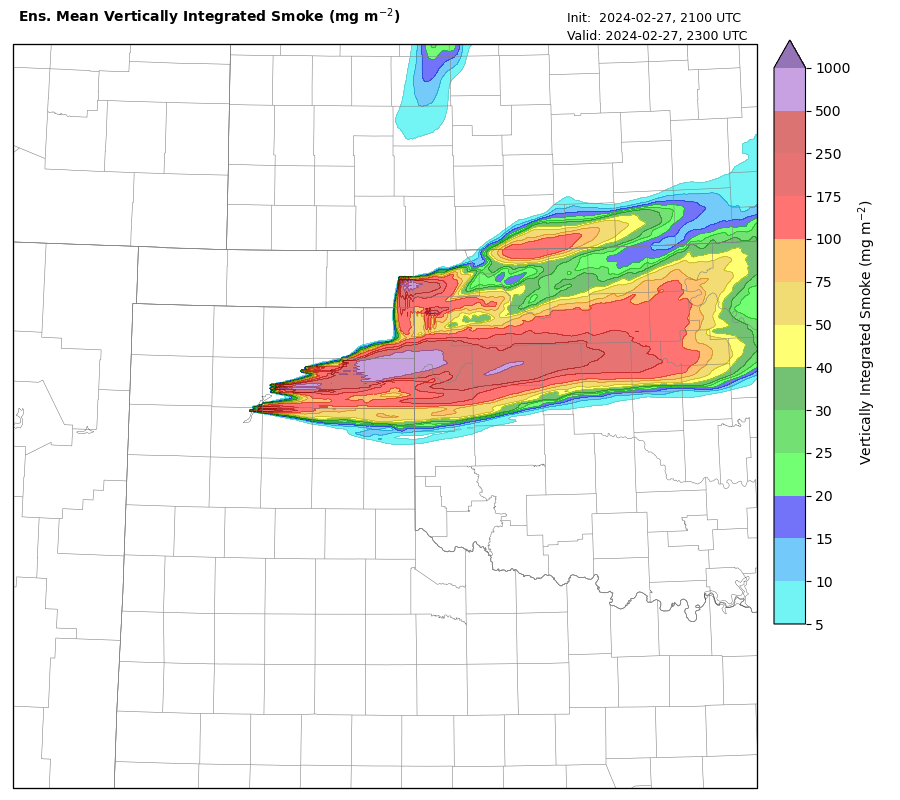
Pat Skinner
Pat Skinner works on the post-processing, visualization and verification of WoFS guidance. He tries to identify ways the system can provide unique forecast information, then works with NWS meteorologists to develop real-time products that visually communicate that information.
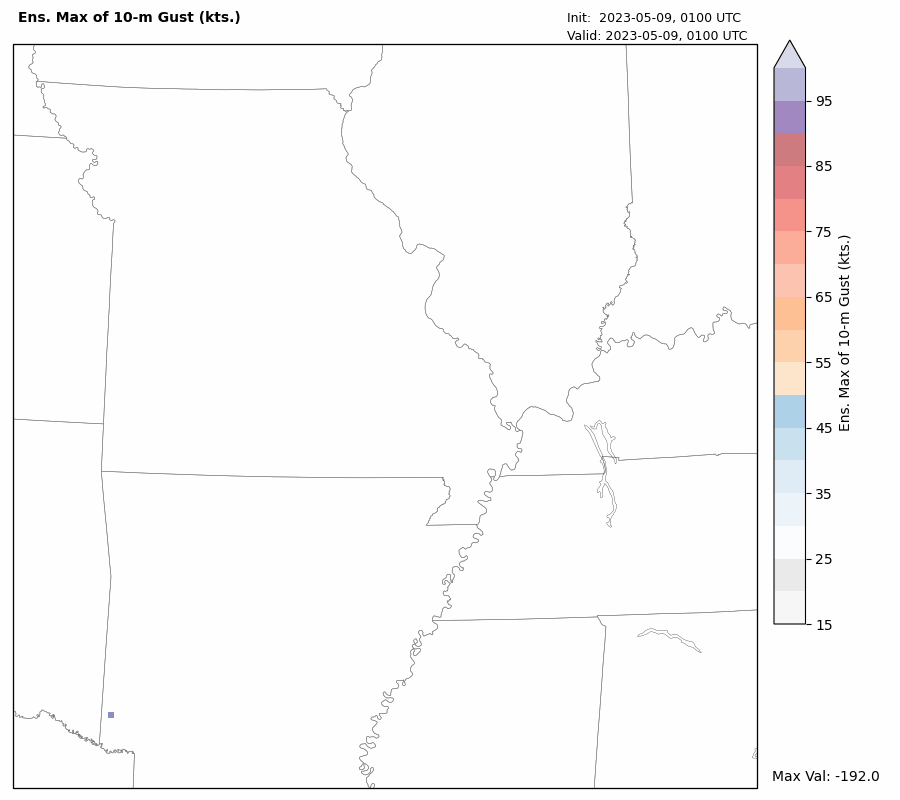

Miranda Silcott
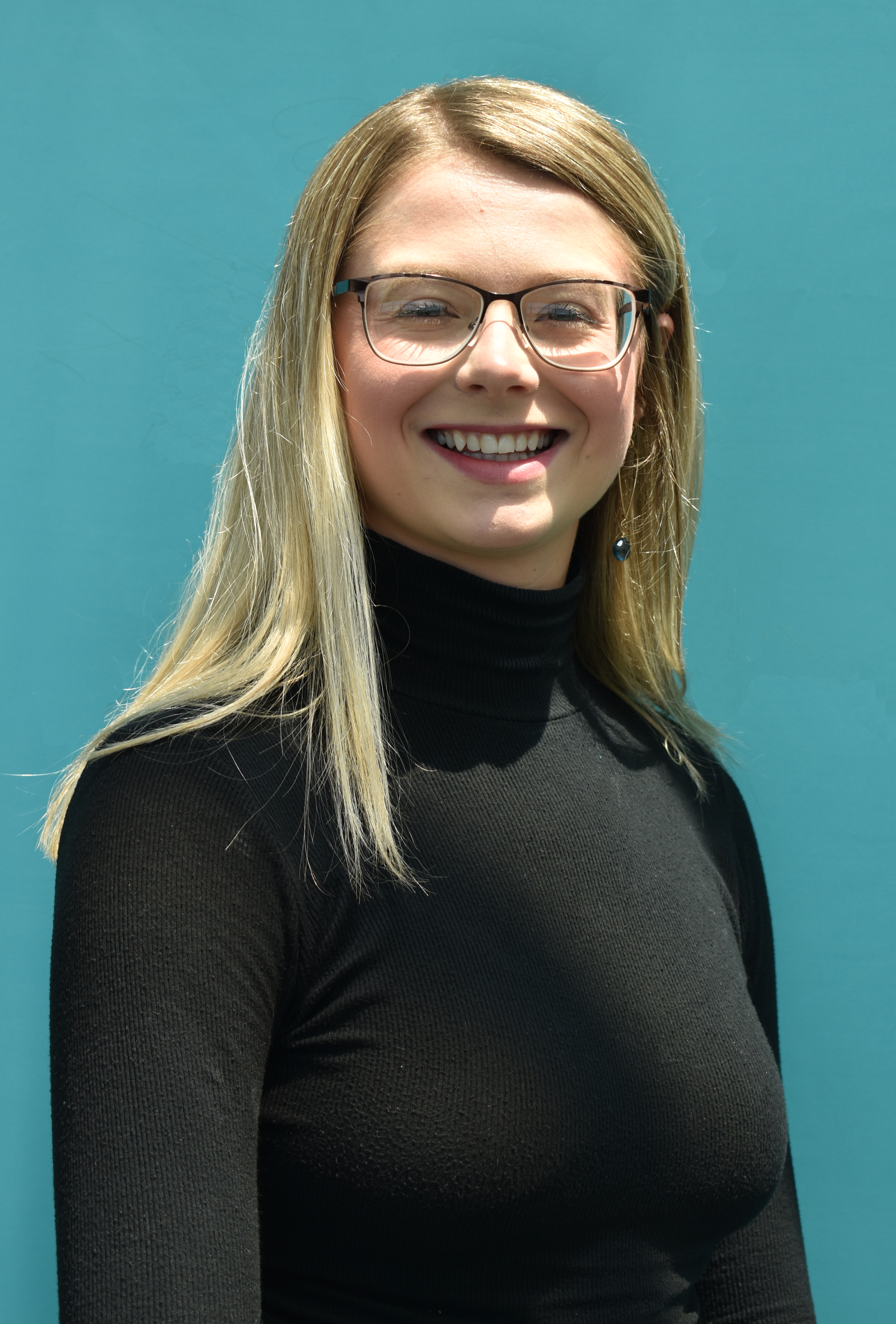
Miranda Silcott explores the operational usability of WoFS through experiments to examine how forecasters envision WoFS guidance fitting into their forecast process. Lately, she has been working on how WoFS influences forecast-related products and communication in the watch-to-warning space.
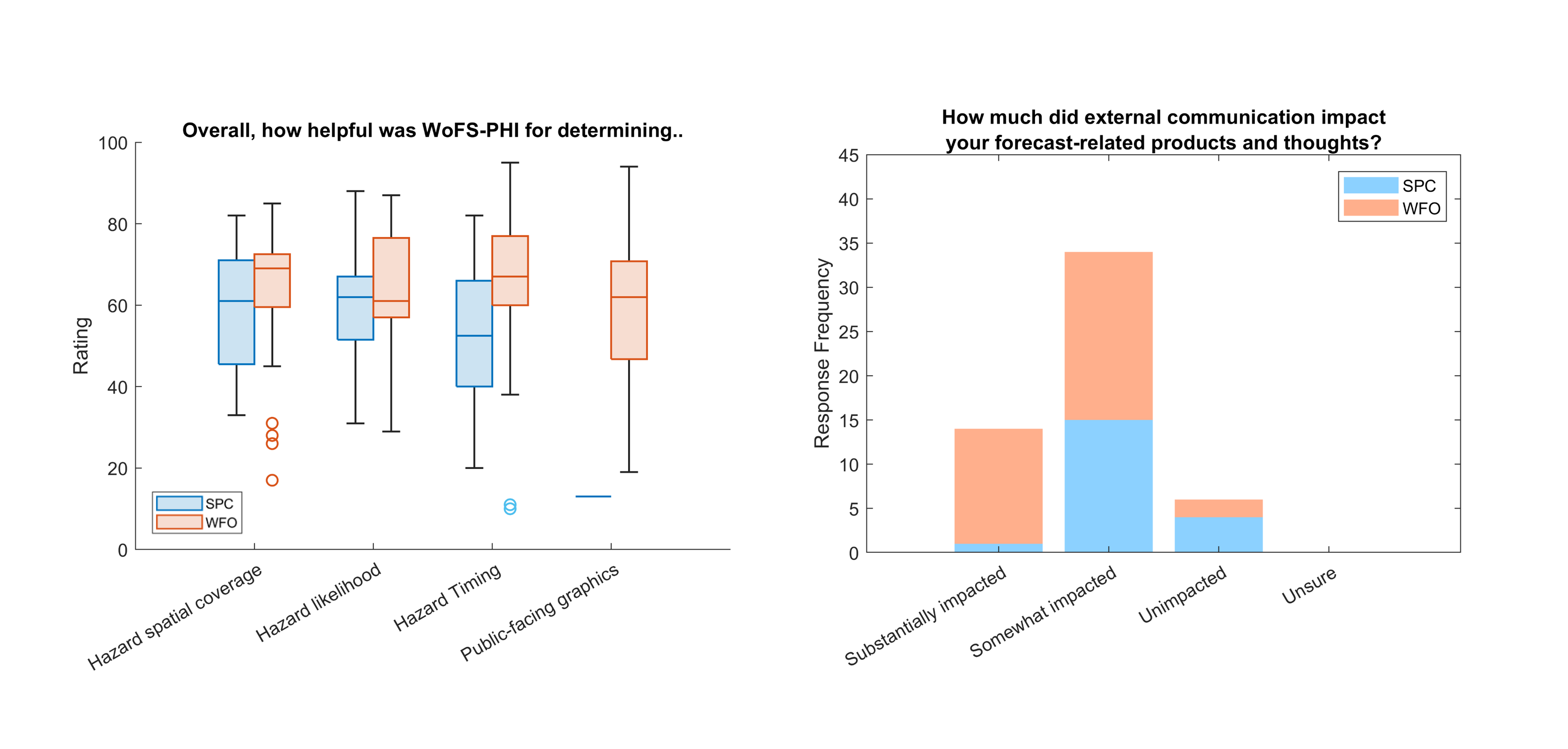
Yunheng Wang
Yunheng Wang's work mainly focuses on the development of hybrid data assimilation method within the WoFS and the developments for next-generation WoFS, for example, the 1-km WoFS and the MPAS-based WoFS.
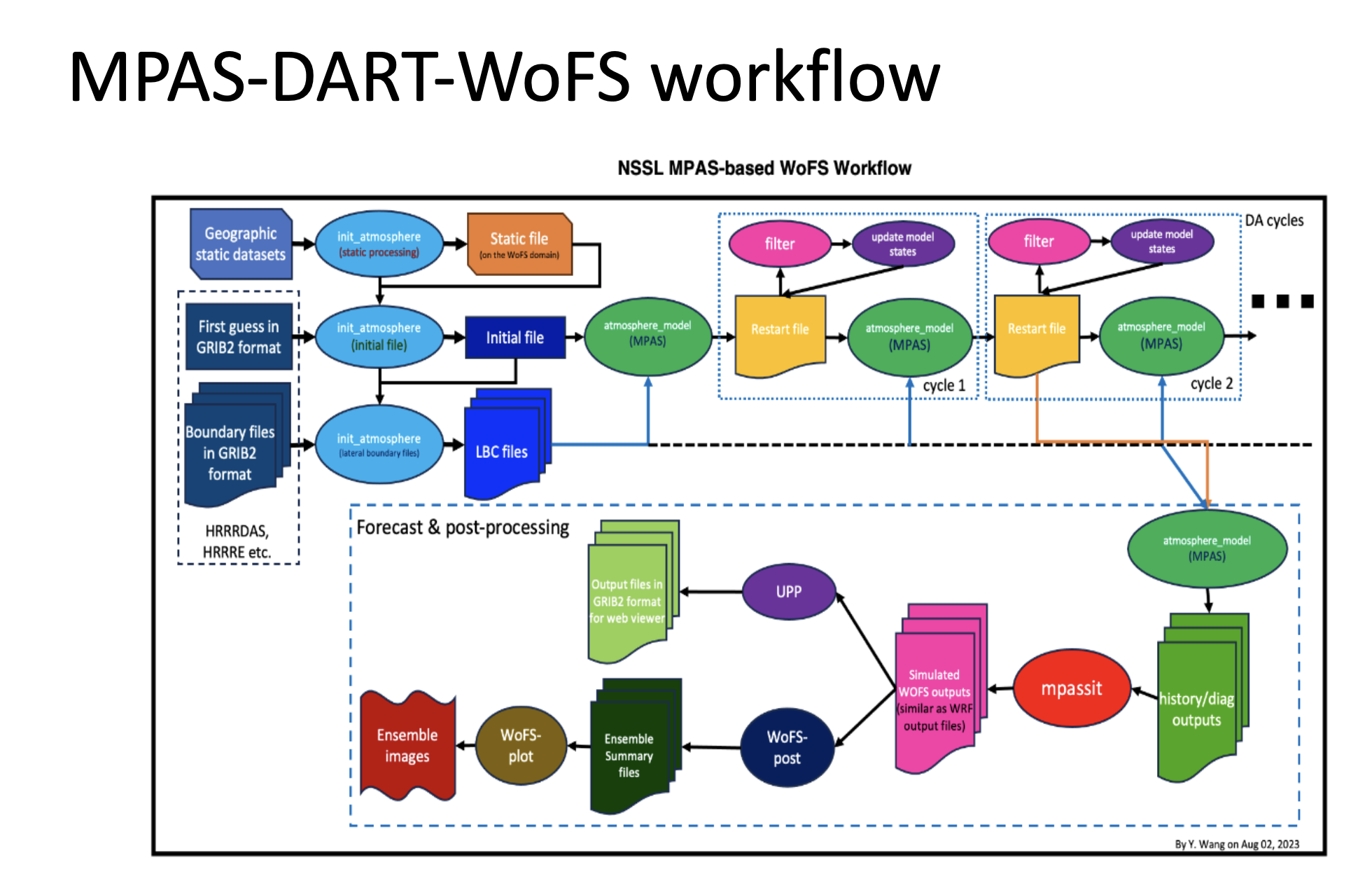

Nusrat Yussof

Nusrat Yussouf has been working on WoFS since its inception in 2009, and is one of the main developers of the modeling system, providing forecasters with probabilistic guidance of thunderstorm hazards with high temporal and spatial accuracy.
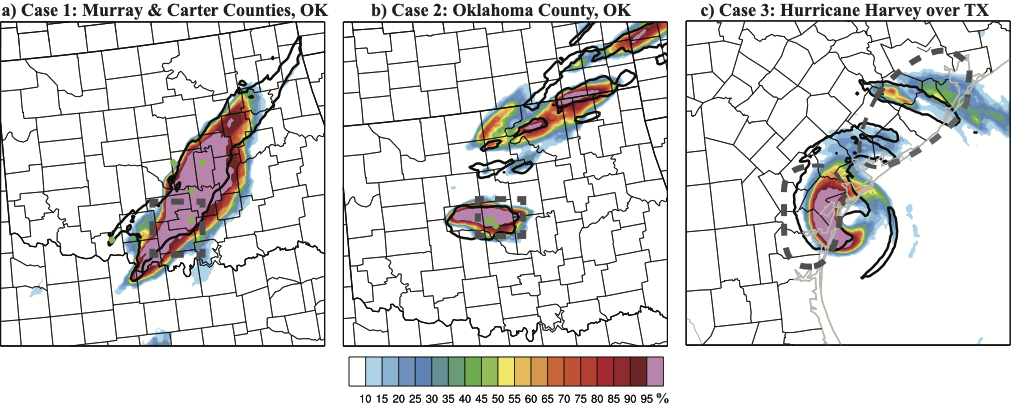
Joshua Martin
WoFS is now cloud-based! Thanks to Joshua Martin's efforts, cb-WoFS now leverages cloud scalability, flexibility and cost-efficiency. Model runs are managed via a single web app, handling HPC provisioning, data management and visualization.
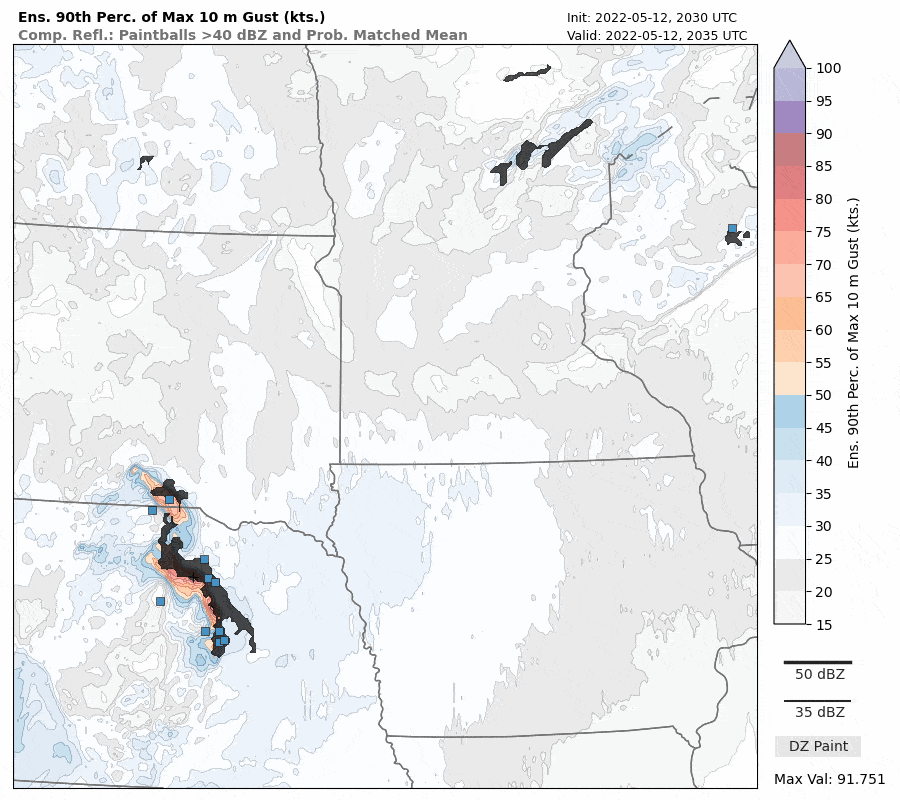

Kent Knopfmeier

Evolving WoFS into a real-time system requires an efficient workflow. Because of Kent Knopfmeier's development work, the WoFS can ingest datasets needed for initialization and assimilation, initiate the 15-min cycling, and launch forecasts every half-hour.
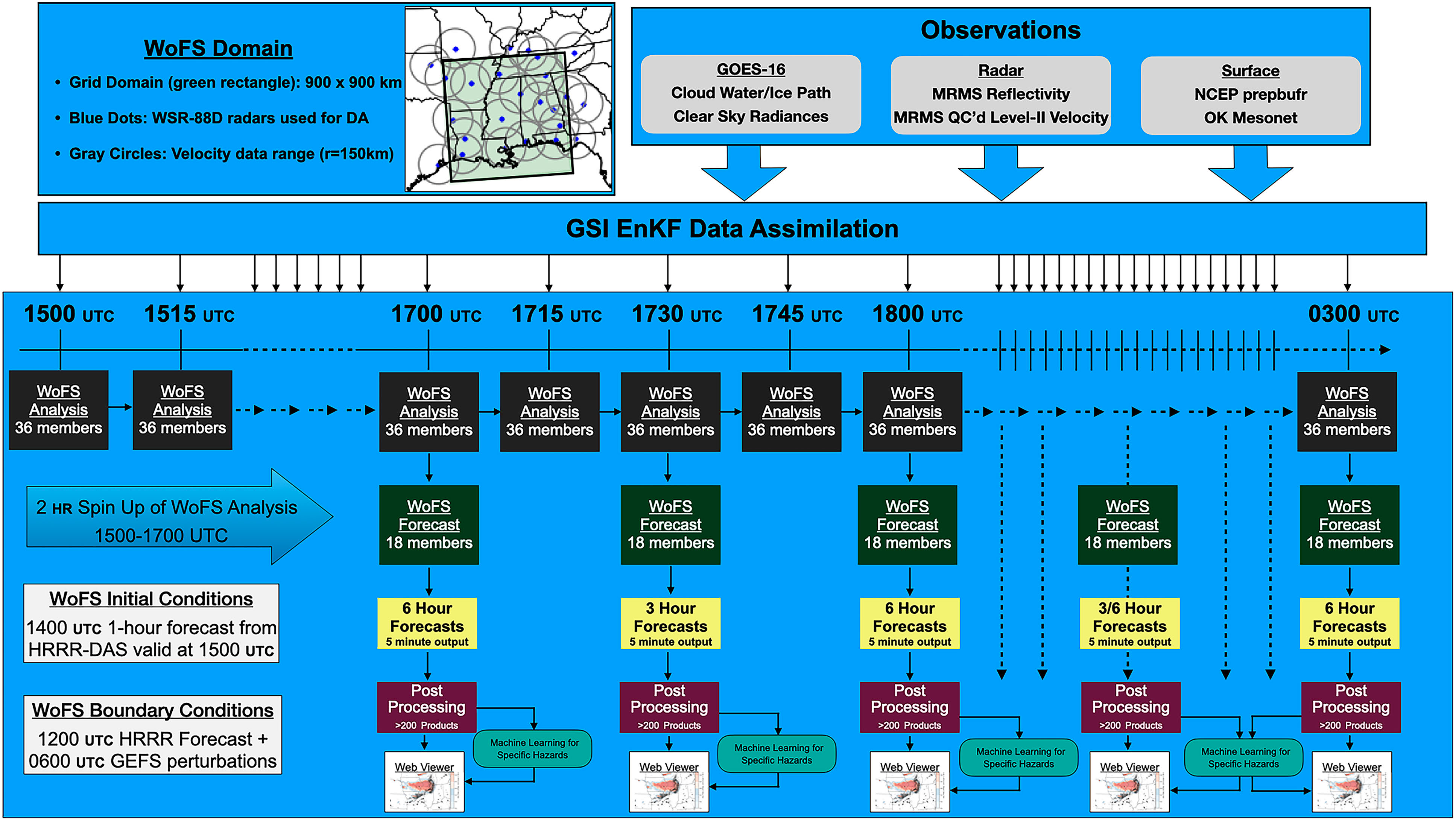
Brian Matilla
Predicting flash floods remains a major challenge. Research by Brian Matilla aims to improve WoFS skill in predicting heavy rainfall events with ample lead time. He also engages heavily with NWS forecasters and stakeholders for WoFS real-time runs.
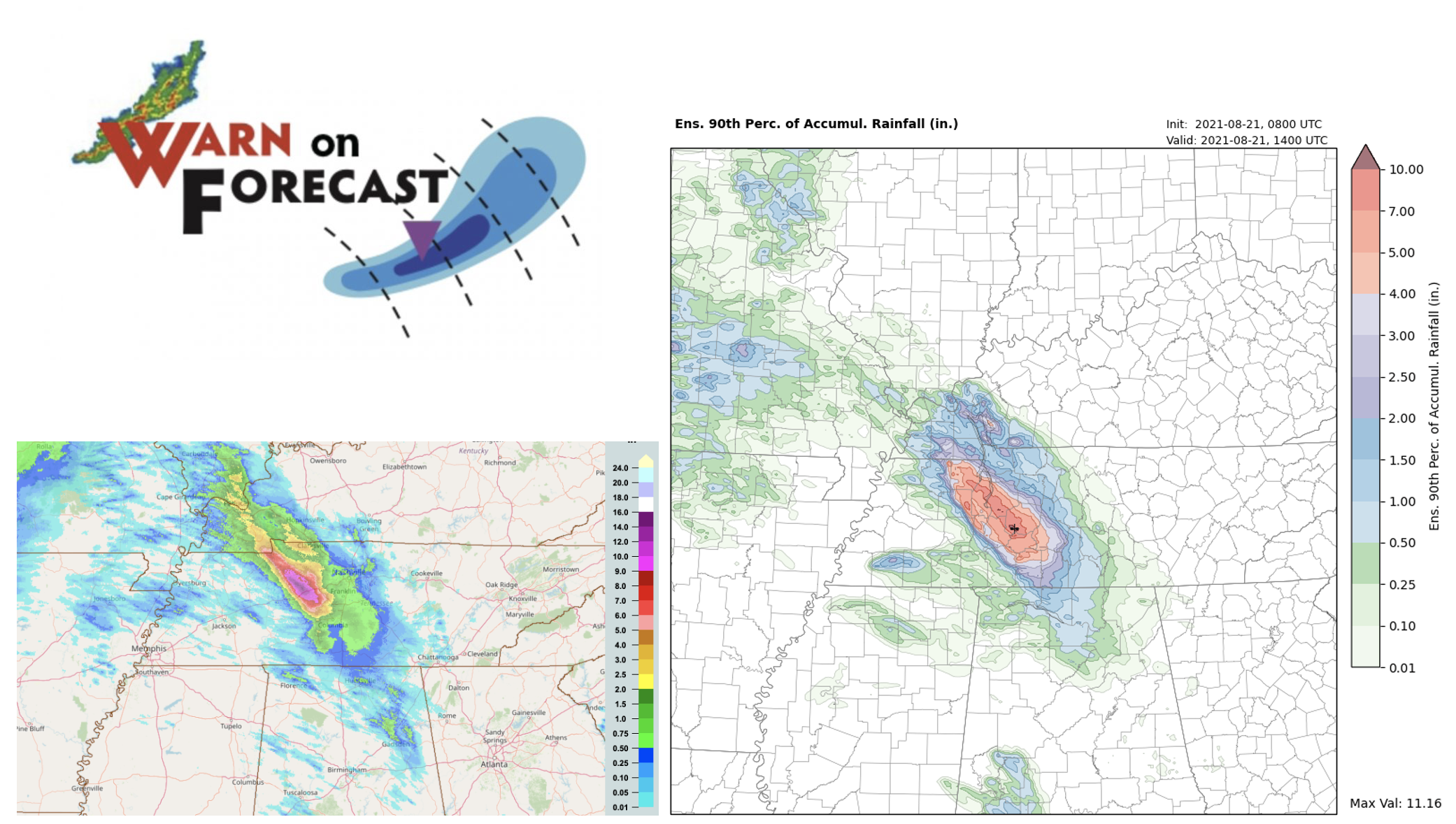

Chris Kerr

Chris Kerr has been associated with WoFS since 2012, first as a graduate student and now as a research scientist. His research has focused on improvements while also developing new usage methods. Lately, he has been working on the next-generation 1-km WoFS.
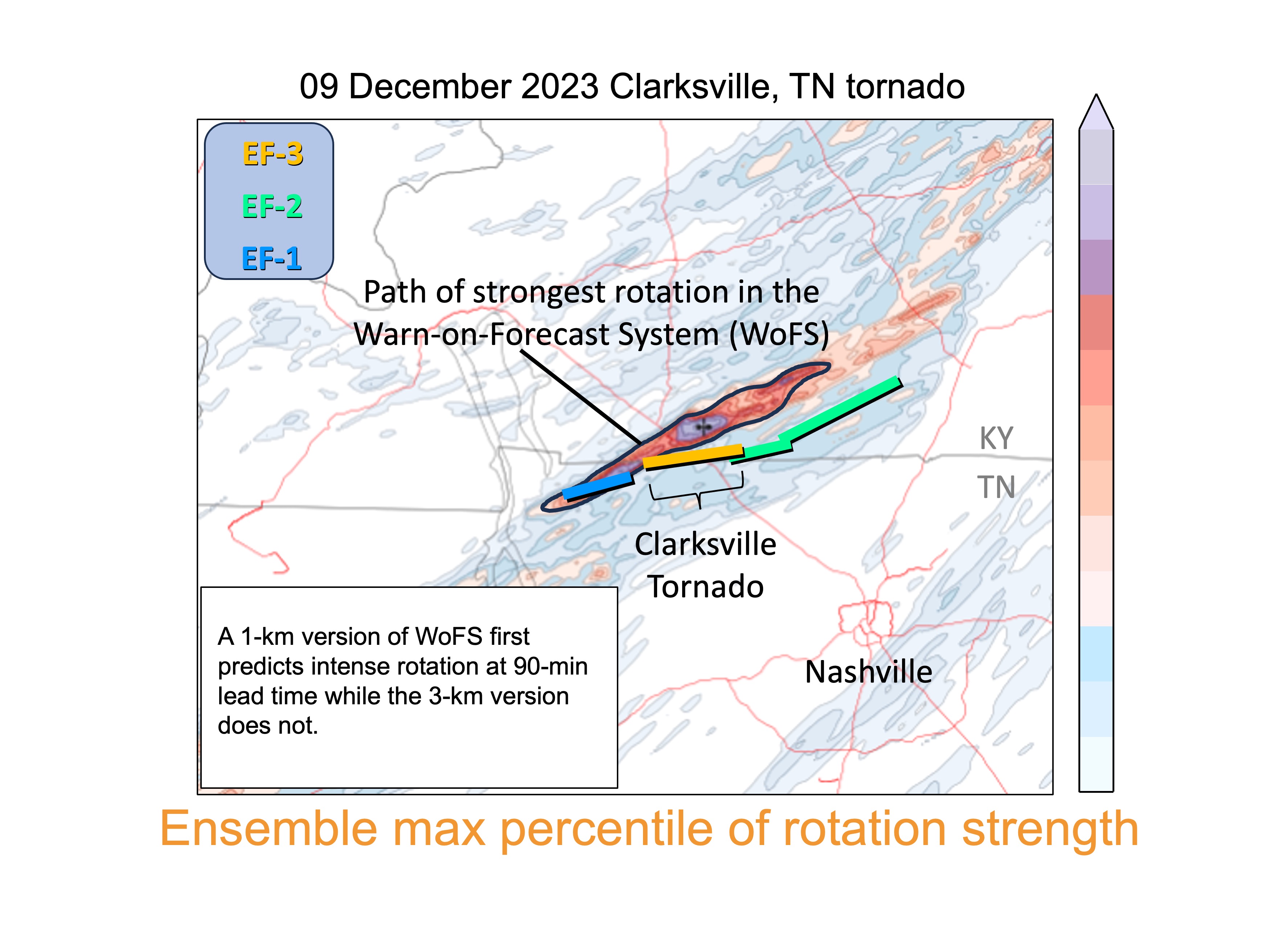
Kimberly Hoogewind
Kim Hoogewind has contributed to post-processing and visualization of WoFS simulations, including the development of the WoFS sounding viewer.
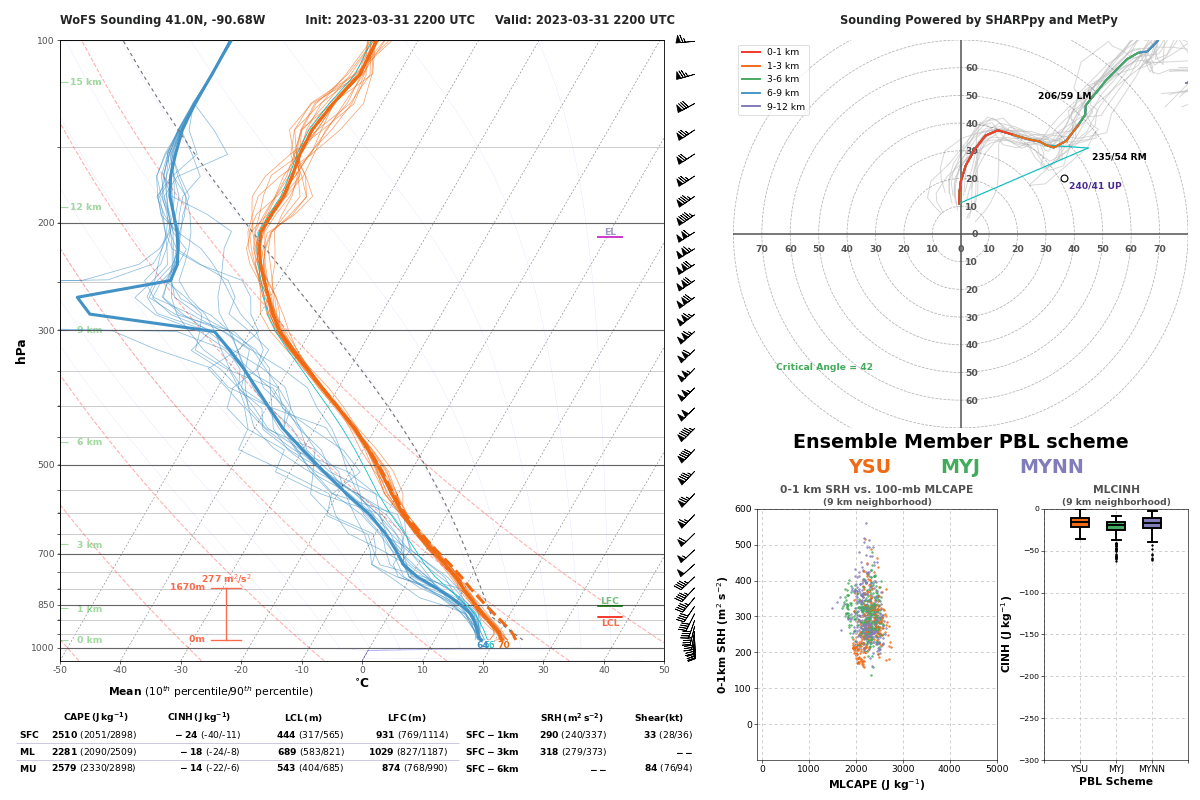

Eric Loken

Eric Loken is working to advance WoFS severe weather prediction capabilities by merging WoFS and ProbSevere forecast output. This approach enables more frequent forecast updates and can reduce spatial displacement errors of WoFS storms. Eric also facilitates user-engagement experiments to solicit feedback from WoFS users.
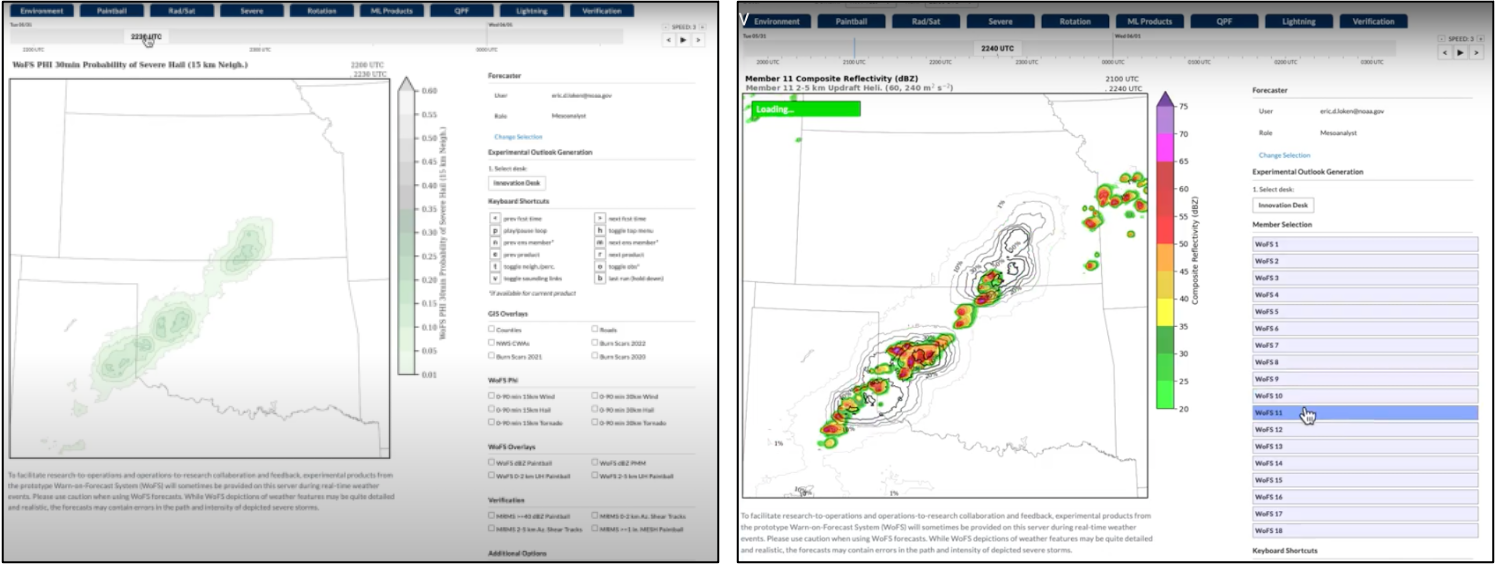
 Skip to main content
Skip to main content
